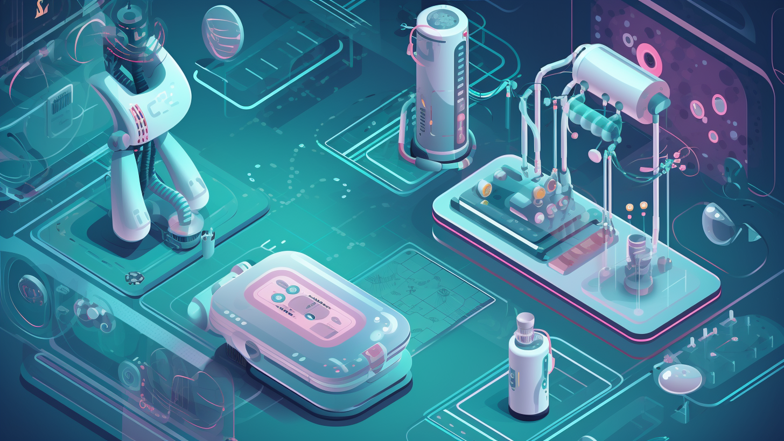
The application of nanotechnology in healthcare is relatively new, and it is an area that is receiving a lot of attention globally. The nano-sized particles that are commonly used in the medical field have the ability to interact with biological systems, providing new and innovative ways to address various medical challenges. Nanoparticles are small and can penetrate cells and tissues, allowing them to deliver drugs or other therapeutic agents directly to the affected area. Because nanoparticles are made of materials such as polymers, lipids, and metals, they can be engineered to have specific properties that make them suitable for addressing various medical issues.
One exciting area of nanotechnology in healthcare is the development of nanorobotics. These microscopic robots can patrol the body systems and identify areas that need treatment. They can release drugs in a targeted manner in response to different signals, such as changes in pH or enzymes, and also can identify cancer cells and carry out surgery. The use of nanorobotics could potentially treat many medical conditions that are currently untreatable or incurable.
Another area in which nanotechnology is being applied is the development of personalized medicine. Personalized medicine involves the use of diagnostic tests to identify a person's genetic makeup, and then using this information to create a tailored treatment plan. Nanoparticles can be used to deliver drugs in a more targeted way, which could help decrease side effects and improve the efficacy of the treatment. This approach is particularly relevant in cancer treatments, where the application of chemotherapy drugs is often limited by adverse effects on healthy tissue.
Nanoparticles can also be used to develop more efficient and cost-effective diagnostics. Currently, most diagnostics involve the use of blood tests, urine tests, and imaging studies. These tests are often costly and take a significant amount of time to complete. However, with nanotechnology, diagnostic tests can be developed that are quick, specific, and can detect diseases at an early stage. Examples include the use of nanowires to detect cancer cells in the bloodstream and nanosensors to pick up chemical changes that indicate the presence of a particular disease.
Nanotechnology is also being used to develop new medical devices that can help improve the treatment of various diseases. For example, nanoparticles can be used to create medical implants that can release drugs over an extended period, or dissolved when no longer needed. The use of nanotechnology can also create better prosthetic devices, such as limbs, that respond to nerve signals and move in a more natural way.
In conclusion, nanotechnology has the potential to revolutionize the healthcare industry. While it is still a relatively new field, it is already making significant strides in drug delivery, diagnostics, and medical devices. In the future, nanotechnology could help reduce healthcare costs while improving the efficacy of treatments. It could also lead to the development of new treatments for currently untreatable conditions. The application of this technology for healthcare is an exciting and rapidly advancing field that is changing the way medical professionals deliver care to patients.
Comments
Post a Comment